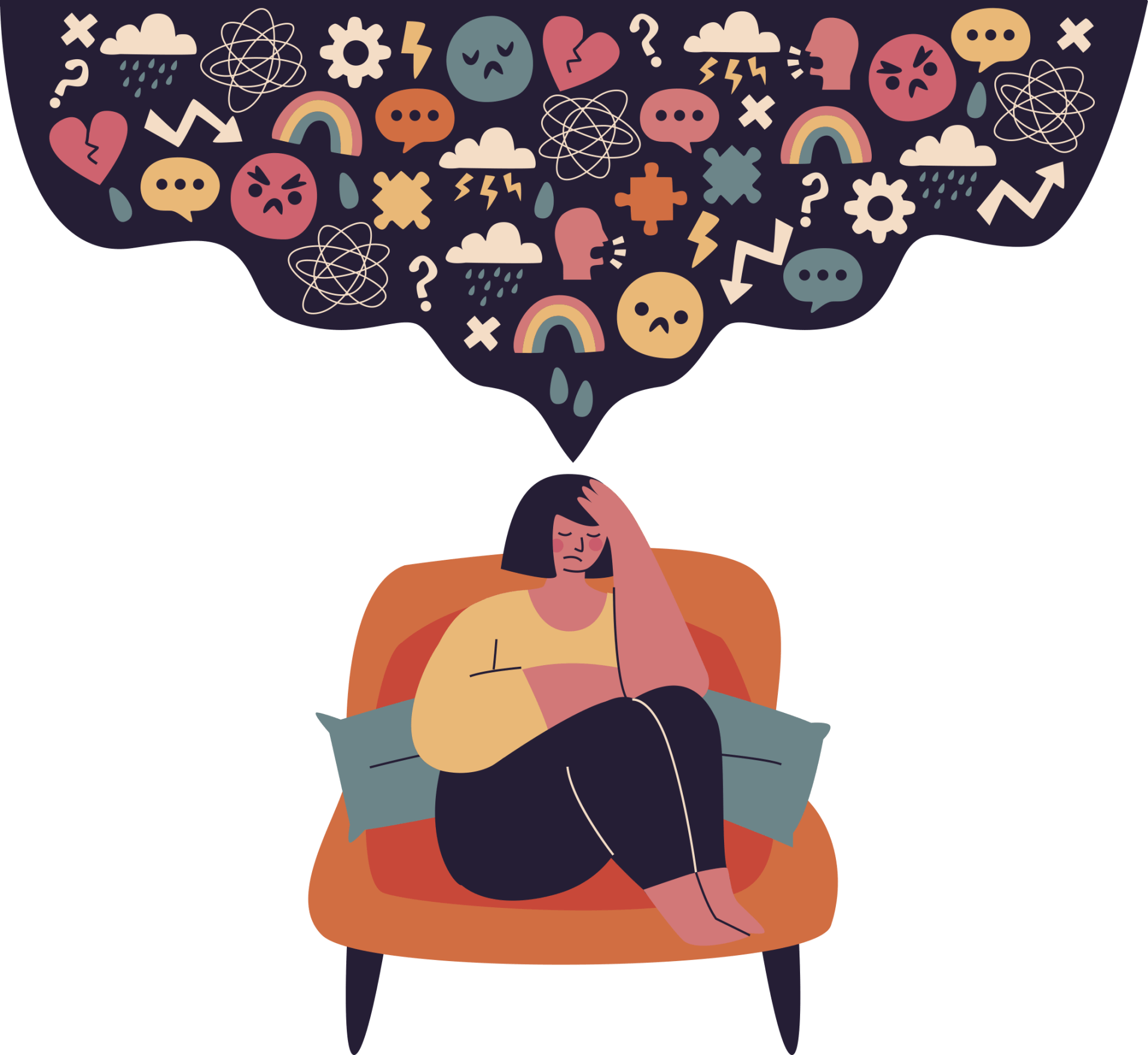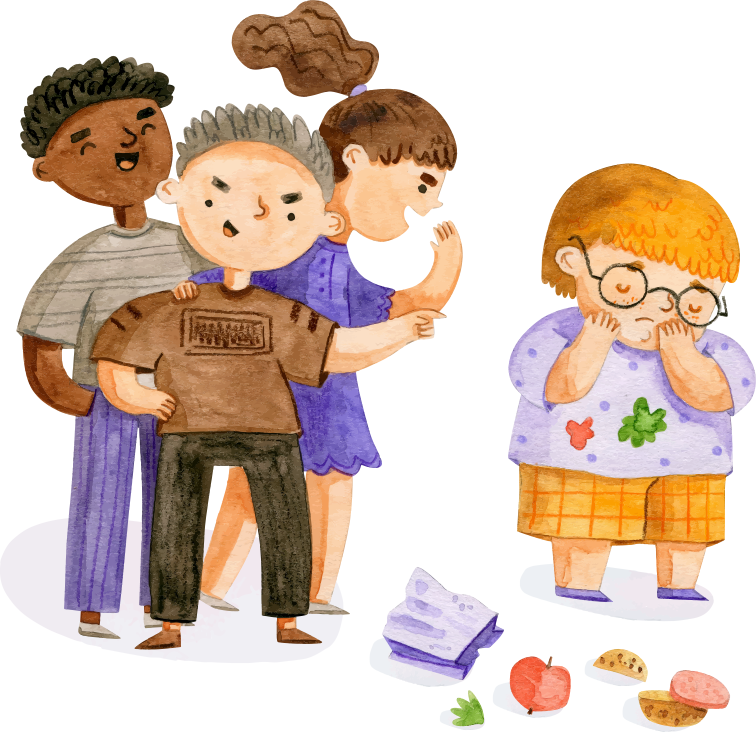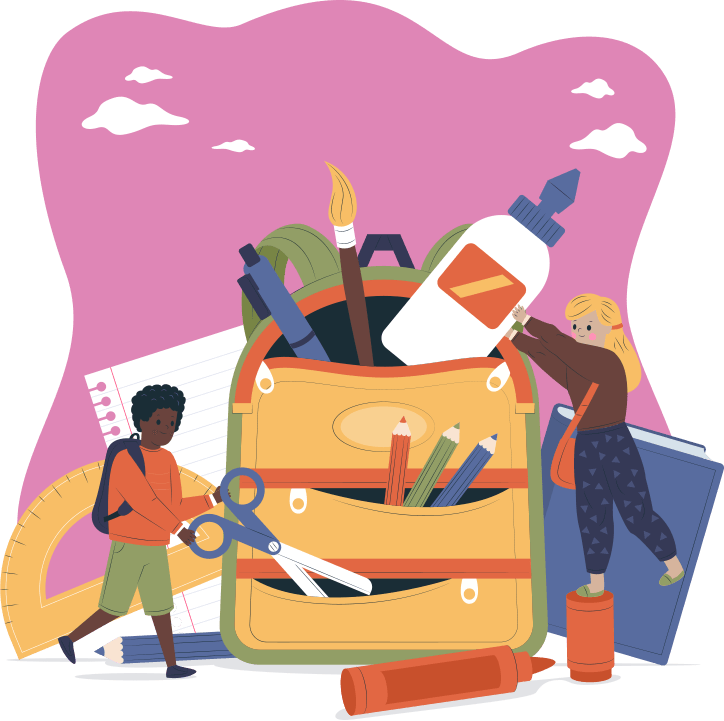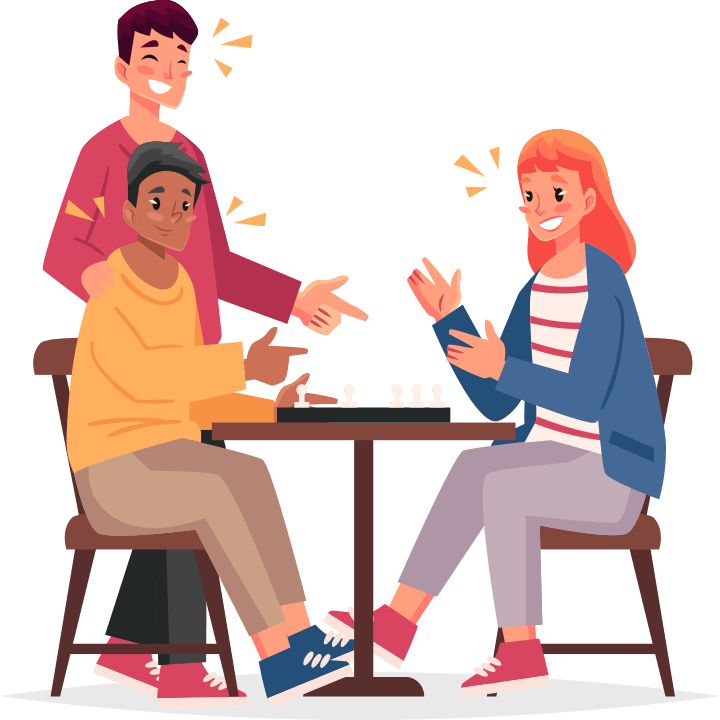HELPFUL TOOLS
About Autism
In this section we offer a range of tools to help you deal with your feelings, whether it's enduring a school bully or how to cope with everyday anxieties.


What is Autism?
Autism is a lifelong, neurological condition which affects a person’s ability to understand the world and communicate with others around them. Autism affects males and females; there are around 700,000 people with the condition in the UK – this is over 1 in 100. Autism is manifested differently in everyone. It is considered a ‘spectrum condition’ therefore, no two autistic people will be the same. Support must be tailored to the individual’s needs. The dyad of impairments highlights the challenges in social communication and restricted, repeated behaviour patterns and interests.
Autistic people may find the following aspects difficult:
- Developing and maintaining social relationships.
- Relating to how other people feel.
- Thought rigidity (black and white thinking).
- Displaying obsessive and repetitive behaviours.
- Eye contact and reading body language/gestures/facial expressions.
- Not understanding jokes, sarcasm, or metaphors (may take language literally).
- High levels of anxiety in social situations.
- Identifying and expressing own emotions and communicating own needs (alexithymia).
- Change of routine (even small changes can cause distress).
- Having unusual interests.
- Sensory processing difficulties (hyper or hypo sensitivities).
- Focusing very intensely on one topic for an unusually extended amount of time.
- Managing fatigue and burnout.
There are three theories that can be useful in explaining aspects of autism:
Theory of Mind – struggles with understanding other people’s thoughts and intentions and a difficulty with predicting other people’s behaviour.
Executive Function – struggles with planning, controlling inhibitions, mental flexibility, and emotional regulation.
Central Coherence – struggles to retain and express the general gist of a story/situation and prefers specific details.
The ‘Double Empathy Theory’ suggests that a difficulty will arise when there is a mismatch of neurotype. There can be a level of disconnect between autistic and non-autistic people which can lead to miscommunications. It should not always be a case of expecting an autistic person to adapt; non-autistic people have a role to play too.
An Asset-Based Approach (Actually, We Can!):
- Passion and hyper-focus.
- Attention to detail.
- Creative abilities.
- Honest.
- Empathetic.
- High IQ.
- Very resilient.
- Can see the world from a different perspective.
Busting the Myths about Autism:
- Many autistic people do want friends.
- Autistic people can be involved in romantic relationships.
- Autistic people have a voice.
- Autistic people can express empathy – sometimes, we are overly expressive.
- Autistic people do have a sense of humour.
- Many autistic people are very happy.
- Autistic people can be successful in education and employment, with the right level of support.
- Autistic people can live independently.
Autism is something to be proud of. It’s important for everyone to embrace their differences!

What is Bullying?
Bullying is when someone or a group of people are mean to others. Bullying is the display of repeated, negative behaviour towards someone - there is often an imbalance of power. People can sometimes be bullied due to their disability, race or sexual orientation.
Different Types of Bullying:
- Physical - kicking, hitting, punching.
- Verbal - teasing, nasty comments, name-calling.
- Emotional - spreading rumours, excluding people, gossiping.
- Cyberbullying - nasty texts/emails/messages on social media, trolling.
- Sexual - crude comments, unwanted touching, sexting.
How Does Bullying Make People Feel?
- Lonely.
- Worthless.
- Upset.
- Scared.
My Experience:
During secondary school, despite my anxieties and insecurities, I found three people who I believed would understand and support me. These friendships were a major breakthrough. However, when I was struggling, they turned against me. They excluded me from activities meaning that I spent break and lunch time alone. They would often talk about me behind my back and question why others would want to befriend me. My confidence was shattered, which led to my mental health deteriorating. Eventually, I had to be withdrawn from mainstream school.
How to Tell the Difference Between a FRIEND and a DNEIRF?
Sometimes, it can be hard to tell a true friend from a fake friend.
A FRIEND is:
- Someone who is nice to you all the time.
- Someone who enjoys spending time with you.
- Happy for you to spend time with others.
- Someone who pays you compliments and makes you feel good about yourself.
- Someone who you can have a laugh with and make good memories with.
A DNEIRF is:
- Someone who is nice to you sometimes but who talks behind your back.
- Someone who uses you and only spends time with you when they want to.
- Someone who gets jealous, either only wanting you for themselves or turning others against you.
- Someone who says mean things and/or embarrasses you in front of others.
- Someone who excludes you from social groups and someone who lowers your confidence.
What To Do If You're Being Bullied:
- Remember, it is not your fault. The bullies are in the wrong.
- Remember, you're awesome just the way you are and do not need to change.
- Know that you are not alone - there is support out there.
- Speak up, tell someone you trust (e.g. a teacher/parent/friend/Childline).

What is Anxiety?
Anxiety is a negative reaction to being unsure of something. ‘Worrying’ or ‘feeling nervous’ are other terms to describe anxiety. Anxiety is normal – everyone feels nervous sometimes. Although, anxiety can become a problem if you feel nervous ALL OF THE TIME. Some people have anxiety disorders, which affect their everyday life. Anxiety can sometimes be confused with adrenaline and excitement – you may get the same tingly feeling in your stomach!
How can I recognise anxiety?
There are many ways that you can tell if you’re anxious. Sometimes, it can be hard to know if you’re worried. Anxiety presents itself differently in different people, but there are certain things to look out for. Some symptoms of anxiety include:
- the feeling of butterflies in your stomach
- faster heartbeat
- stomach aches
- headaches
- shaking/feeling dizzy
- cold or hot sweats
- wanting to avoid the particular situation
Why am I anxious?
People experience anxiety for many different reasons. Remember, that no reason for feeling anxious is a stupid reason! Anxiety often increases during the teenage years, because people may feel more self-conscious and there’s more expectation to fit in with peers (conformity isn’t always a good thing!) Some reasons why people may feel anxious include:
- They are being bullied
- They are a perfectionist and things may not be exactly right
- They forgot their homework
- They don’t get on with their teacher
- They have to change their routine (unpredictability is usually a big trigger of anxiety for autistic people)
Non-autistic people may worry a lot about big things, such as wedding plans, driving lessons or exams. However, autistic people may have irrational and unusual fears, such as natural disasters occurring or they may worry about very small things, like running out of their favourite food. I once heard an autistic person say they were anxious that they would get stuck behind the radiator. However this may sound to a non-autistic person, it was incredibly real for the autistic person. So, to combat this fear of getting stuck, someone had to measure them and measure the distance between the wall and the radiator. This showed them a concrete example, which would help decrease their anxiety.
How can I manage my anxiety?
There are lots of things that people can do to manage their anxieties, if it’s controlling their everyday lives. Although everyone experiences anxiety at some point during their life, it can sometimes become so severe that people start to withdraw and isolate themselves from others (this can be a very lonely trap!).
People manage their anxieties in different ways, depending on their personal triggers and the severity of their anxiety. I’m going to highlight a few things that could help you cope with your anxious thoughts. I hope they are useful!
- Listen to music
- Talk about what makes you anxious. Understand that you’re not alone.
- Create a worry bag – put all of your worries in a bag and lock them away.
- Create a set of coping cards – little flashcards with reminders to think positively.
- Challenge your negative thoughts – ask yourself what the evidence is that your negative thought is true (for example, how do you know that nobody likes you?)
- Do a grounding exercise – find 5 things you can see, 4 things you can hear, 3 things you can touch, 2 things you can smell and 1 thing you can taste.
- Write down your negative thoughts, screw them up and chuck them away.
- Write a poem about how you’re feeling and use it in a positive way.
- Do breathing exercises.
- Understand that you cannot please everyone. Sometimes, it’s okay to say no!
5 Point Scale:
The 5 Point Scale is a useful tool for understanding how anxiety can escalate. This scale may help you to recognise what anxiety looks and feels like. You can write or draw things that could help you calm down. The 5 Point Scale can be displayed either at home or in a classroom to remind you of what to do when your anxiety rises. It’s important to try and stay at either a 1 or 2 on the scale so that you’re happy!
The Volcano Concept:
Knowing what makes you anxious is the first step to managing it. You can measure how anxious each trigger makes you, using the volcano concept. For example, at the bottom would be “I am okay” and at the top would be “I’m going to explode.” The aim of this concept is to recognise when you are highly anxious and put strategies in place to help you calm down. This concept is very similar to The 5 Point Scale.

Surviving School
What are the benefits of going to school?
- School can provide us with a good education, giving us a chance to progress to additional studies or gain employment.
- School gives us opportunities to make new friends.
- School can help us gain confidence.
- Studying new things every day can help stimulate our minds and expand our knowledge.
Why might we find school difficult?
School may be challenging for many different reasons. It’s important to realise that other people sometimes find school hard as well. Autistic people may struggle at school because:
- Travelling to and from school can be challenging and tiring. There is an extended amount of socialising. Travelling independently may provoke anxiety because there might be a lot of hustle and bustle and no-one to support us.
- School requires a lot of social interaction and engagement. It can be exhausting to have to continually conform and socialise with peers. We may not know what to say to people and find it difficult to make friends.
- We may have a strong dislike of certain lessons, leading to our grades deteriorating in that subject or us avoiding it all together.
- Our sensory difficulties can make it hard to concentrate in class. We may get easily distracted or overwhelmed in loud environments, such as a noisy classroom or canteen.
- Asking for extra support in class and during unstructured times, such as break and lunch time, can be difficult. We may not know how to ask or feel embarrassed in front of our peers.
- The workload can be too much for us to cope with. Additional homework can be hard to manage, which can heighten our stress levels.
- We may find it difficult to cope with changes in routine. Even a slight change or unpredictability could lead to an emotional outburst or a display of anger issues.
- We may get bullied by our peers for being slightly different. Bullying can cause feelings of worthlessness and may lead to a spiral of depression or other mental health issues.
- Teachers and other school staff may not understand our needs and support us appropriately, leading to feelings of isolation and frustration.
My Experience:
I struggled throughout primary, and things worsened at secondary. My confidence was shattered, and I felt incredibly self-conscious. It was an isolating experience. Three girls who I considered to be my friend, turned against me and I was left alone. I was too shy to smile or speak to people – I was socially awkward leading to peers thinking I was rude. The school had no understanding of autism and it was a constant battle to get any support, causing us to feel unvalued and exhausted. The unhelpful comments by teachers only heightened my anxiety. My anxiety was debilitating – I was overwhelmed by the smallest of changes. Due to anxiety, I did not eat lunch for six weeks; this had a detrimental affect on my physical health. After numerous meetings, I was placed on a reduced timetable where I attended school twice a week and was home-educated for the remaining time. However, as I was still severely anxious, I was later withdrawn from mainstream education and referred to an alternative provision. This was my lifeline. Overall, my educational experience had a huge impact on my mental health – although my time at school was negative, I am now working to improve the education system for other autistic people.
Top Tips for Surviving School!
- Just be yourself. Continually trying to fit in to a world that is not designed for us is exhausting.
- Stand up for yourself and be strong. Never let anyone get you down. If you’re being bullied, tell a trusted adult (teacher, parent, neighbour or outreach worker). Try to act confident, even if you’re not.
- Don’t worry about what anyone else thinks. Focus on your own dreams. Nobody has the right to judge you. Try not to compare yourself to others.
- Stand up for your rights. Sometimes, it can be very frustrating if you feel staff do not understand you. This is why it’s vital to get your voice heard. Use your preferred method of communication to express yourself. You have the same rights as everyone else to speak up and say if you are feeling uncomfortable, need support or if something is incorrect.
- Build upon small steps – taking small steps will reduce stress and anxiety. Prioritising workloads is important – you can’t pour from an empty cup. Set yourself achievable targets.
- Use your interests as motivation. Make a list or poster to reflect upon your interests and the reasons why school is important.

My Perspective
I find it excruciatingly difficult to make friends because I am extremely shy and struggle to know what to say. I find it easier to communicate online because there is more time to process information and there is not the additional pressures of having to understand body language, facial expressions and tone of voice. I often feel disconnected from others. I have found it difficult to find people who genuinely understand and accept me for who I am.
Why Might We Find Socialising and Making Friends Hard?
- Socialising can be exhausting. Autistic people have lower social energy levels, so additional social pressures can cause fatigue.
- Low self-esteem and anxiety can cause people to withdraw from social situations.
- Social situations can be overwhelming, particularly in busy settings such as nightclubs, shopping malls or school. Sensory challenges can distort our ability to clearly communicate.
- We create high expectations of friendships - we may compare ourselves and our relationships to others.
- Mastering body language and facial expressions can be tricky, as we may not always pick up on subtle non-verbal cues that people are trying to give us. Being 'social detectives' can be hard work!
- Conversations, even on a one-to-one basis, can be difficult.
Why We May Struggle to Have Conversations:
- We may not have enough confidence to initiate conversation. If we become particularly anxious, this can affect our ability to speak. Making the first move often requires a lot of social energy!
- Group conversations can be hard - we may struggle to take turns or may be excluded from the group.
- Loud environments can be overwhelming; this can distort our ability to process conversation and respond as we may find it hard to filter out unnecessary information.
- We may not know what to say or how to say it. We may appear to be socially awkward. At times, it can be hard to understand what is appropriate and inappropriate to say - this will change depending on the context of the conversation/environment and the person you are talking to.
- We may find it difficult to read facial expressions and body language. Eye contact can also be uncomfortable.
- We may at times, be hard to engage as we may appear to be in our own worlds. Shyness can also be mistaken for being stubborn/rude.
- We may overtake the conversation by talking about our interests and not realise if other people are uninterested. We may constantly change the topic and struggle to know how to end the conversation.
- We may struggle to keep up with the pace of the conversation and miss opportunities to speak.
Conversation Starters and Topics:
Autistic people may find conversation difficult for numerous reasons. However, with practise, it can get easier!
Some good conversation starters include:
"What are you doing over the weekend?"
"What do you like to do in your spare time?"
"Have you heard about ... on the news?"
Some conversation topics can include:
- School/Studies/Employment
- Weather
- Hobbies - films, TV, sport, music, crafts
- Family and Friends
- Holidays/Past Experiences
Top Tips for Conversation:
- Keep updated with the news/current affairs, so you have things to talk about.
- Watch conversations in action e.g. in person, on TV/films/YouTube.
- Practise talking in front of a mirror.
- Create cue cards or visuals to remind yourself of what to say.
- Think about what you already know about the person and what you want to find out about them. Use what they have already told you to find new questions/comments to share (create a friend file in your mind!).
- Create a mental mindmap of 'who,' 'what,' 'where,' 'when,' 'why' and 'how' questions. Try to ask open-ended questions, requiring a longer answer.
- Ask questions or comment on your surroundings. Have a discussion about what you can see and hear.
- Try to expand your responses - 'yes' and 'no' answers can sometimes lead to awkward silences.
- Try to use open body language - smile, stand closer to the person, try to look at the person's face, nod/laugh if appropriate.
- Remember, it is okay to pause for a moment in a conversation.
- Be interested!
- Relax - the more you worry about what to say, the less likely you'll be able to say anything!
- If you want to, explain to the person that you find conversations tricky. The chances are, they will find it hard too!
Top Tips for Making Friends:
- Be friendly!
- Believe in yourself - you can do this!
- Be interesting!
- Smile and say 'hello'
- Use social media if you struggle talking to people face to face.
- Find things that you have in common with people - friendships are often formed through similar interests.
- Compromise - do things that your friend likes to do, as well as what you are interested in.
- Join a social group/club. A Different Perspective CIC run regular social activities for autistic young people and adults. The National Autistic Society also run local groups and have a befriending service.
Top Tips for Socialising:
- Prepare yourself - know what you will be doing, who with and when you'll start and finish the activity.
- Socialise for short periods, then give yourself 'downtime' to chill out.
- Be yourself - the right people will accept you for who you are!
What's 'Social Thinking' All About?
'Social Thinking' is a concept created by Michelle Garcia Winner. This concept introduces the idea of expected and unexpected behaviours and teaches that our thoughts about people affect our feelings about them. Social detectives (people who have good social skills) use their eyes, ears and brain to make smart guesses about others (work out what people are thinking and feeling).
An Example: At school, I experienced heightened anxiety which made it difficult for me to smile or speak to people. The fact that I constantly had a flat facial expression and looked unhappy, could've made my peers feel uncomfortable which was why they avoided me (I was unintentionally displaying unexpected behaviour, without realising how I was making others feel).

A Parent's Perspective
"My daughter Lauren, who is now 26, is confident, intelligent, beautiful and hardworking. She has worked tremendously hard to earn her degree despite ongoing challenges during her education. Her experiences have motivated her to pursue her dreams of supporting others. Lauren was diagnosed as autistic aged 12. The signs of autism became apparent when she was 8. We had numerous meetings at her primary school yet nothing was picked up and it was assumed that her selective mutism was just a 'shy phase.' After a while, we made constant trips to the children's hospital where Lauren's behaviour was observed. We were in contact with paediatricians, social workers, an occupational therapist and an educational psychologist. The diagnosis process was long-winded and daunting - it took 18 months before Lauren was diagnosed. However, when we recieved the official diagnosis, there was a lack of information and support. Teachers still didn't have enough understanding as there were limited resources for them.
Before Lauren was diagnosed, I did not know what was happening or why - I felt lost and helpless. Although I knew I wanted to help my child, I did not know how to. It was on a short break with friends that 'autism' was mentioned. I'd never heard of it, but as soon as I started researching it, everything matched up. I approached the GP who referred me to the Child and Adolescent Mental Health Service (CAMHS) straight away. After Lauren's diagnosis, I felt immediate relief. However, I found navigating mainstream services very challenging as no-one understood, so it was a continual fight to get Lauren the support she needed and deserved. Taking her out of mainstream school was the best decision I ever made.
I would advise getting an official diagnosis for your child as early as you can so that you can get the appropriate support. Knowing your child's support requirements can help with choosing the right educational provision and can give you more scope to ask school staff to implement reasonable adjustments in specific areas. There is support out there, so please seek it. It may be a long journey, but it is worth it. Don't give up."
Contact us
Please get in touch to if you want to discuss any of the above further
Contact Us
We will get back to you as soon as possible.
Please try again later.
All Rights Reserved | A Different Perspective

